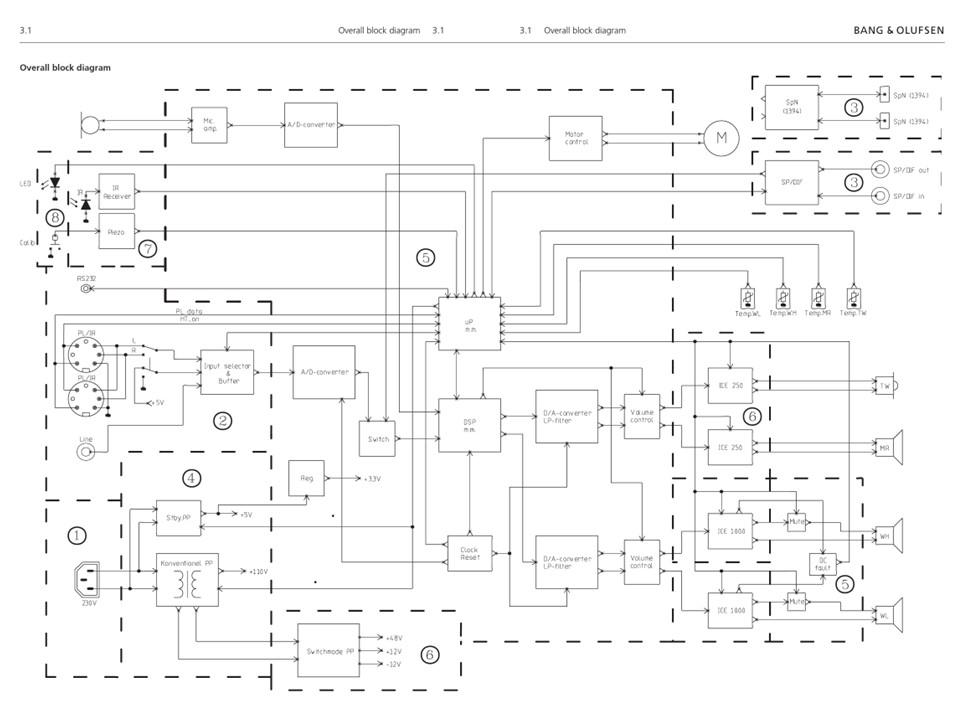BeoLab5 internal DACs
- This topic has 3 replies, 3 voices, and was last updated 2 years, 6 months ago by
mihnea.
- AuthorPosts
- July 29, 2022 at 5:30 pm #7157
Does anybody know the processor that is used in the internal DACs in the Beolab 5s?
I am trying to compare that processor with the processors in the newer, free-standing DACs. This will hopefully help me decide if I should listen to the BeoLab5s through their digital inputs using their own internal DACs or if I should run them through an external DAC into their line inputs. I can’t really tell much difference when I listen to both sources. Thanks!
July 29, 2022 at 7:25 pm #7162Of course there is a DAC inside, but that is part of the signal processing, that is responsible for any signal going into the BL5’s.
Many people claim to hear a difference using the digital vs the analog input.
IMO it is hard to a/b testing, since you will have to have exact the same SPL for both.
Besides external DAC’s which are part of both solutions, are mostly (quite) different – using different filter settings etc.
You normaly do not know everything about each signal chain!In my view it will be impossible to compare ‘your DAC’ and the DAC solution in the 5’s!
So choose what you like best……..…or skip the hassle with using an external device, if you already now don’t notice a significant difference.
Enjoy the music.
MM
July 30, 2022 at 11:09 am #7181I would comment with all due respect, that there is a fraternity of people out there who like to compare the DAC chips against one another. Some DAC chips are deemed good, other less so. This of course is your prerogative. I recall that the DAC is a Burr-Brown (circa 2003 vintage) and would likely not have been revised in that time.
In my opinion, B&O tend to make products with mainstream quality components rather than rely on “moon-cheese unobtainium rare specialty components”.
I would also say in my opinion what you are doing is at best unwise, and perhaps at worse, wont work(??). The BL5 is essentially an all-in-one digital active loudspeaker. loudspeaker, digital amplification, DSP and ADC/DAC are all incorporated withing the chassis.
I do not think you can bypass the internal DACs because of this. Line-in and Powerlink (essentially the same bar a few voltage differences) are analogue and will have been generated via another external DAC. The SPDif input may bypass the the ADC by definition, but will still have to go through the central processor and internal DAC.
Finally, I would say listen to the final output. Are you happy with the sound of the music? i.e. don’t listen to the DAC as the be-all and end-all.
Attached BL5 Process schematic.
 July 30, 2022 at 4:26 pm #7194
July 30, 2022 at 4:26 pm #7194Thank you both for taking the time to reply. I certainly cannot tell the difference between connecting the speakers to my MacBook through their digital coax cables (converted to Toslink, plugged in a Cal Digit dock, which is then connected to the laptop via Thunderbolt) and connecting them through the Line-In inputs into the Topping D30 DAC, which is then connected to the laptop through USB. The two configurations sound the same to me, even at 24 bit/96 kHz music samples. Of course, I still have not figured out how the MacBook’s intrinsic MiDi utility plays a role in all this (that would be another forum question).
Since all of us on this forum tend to get a little obsessive (!), I asked the question about the external DAC, but I’m glad to be brought back to firm ground by your comments, which essentially ask me to show some common sense!
- AuthorPosts
- You must be logged in to reply to this topic.
